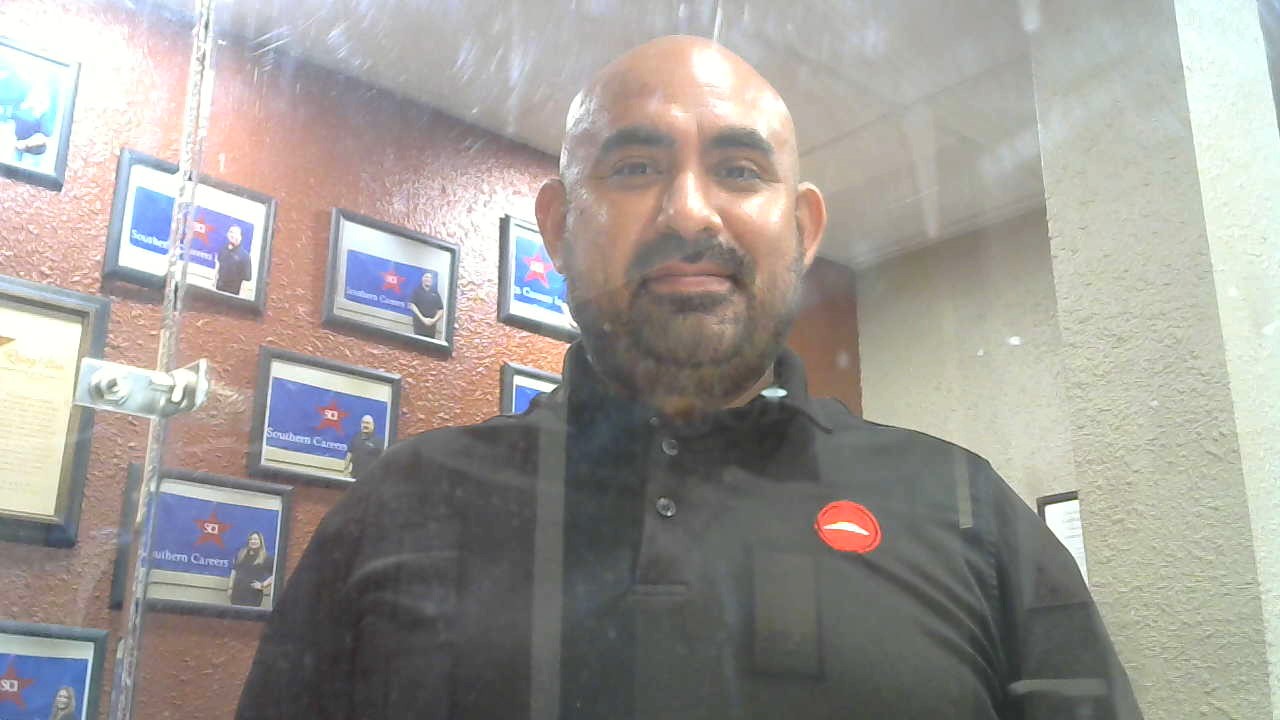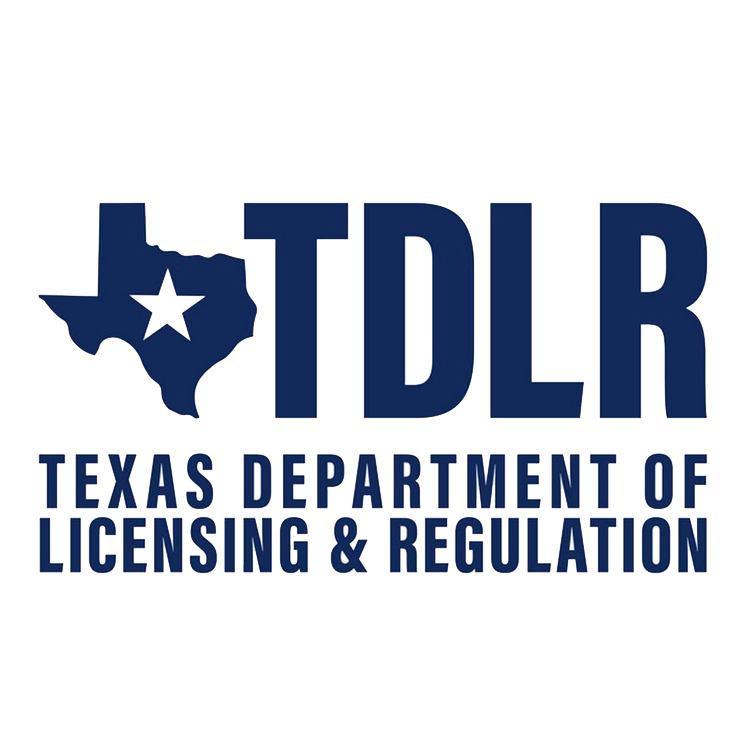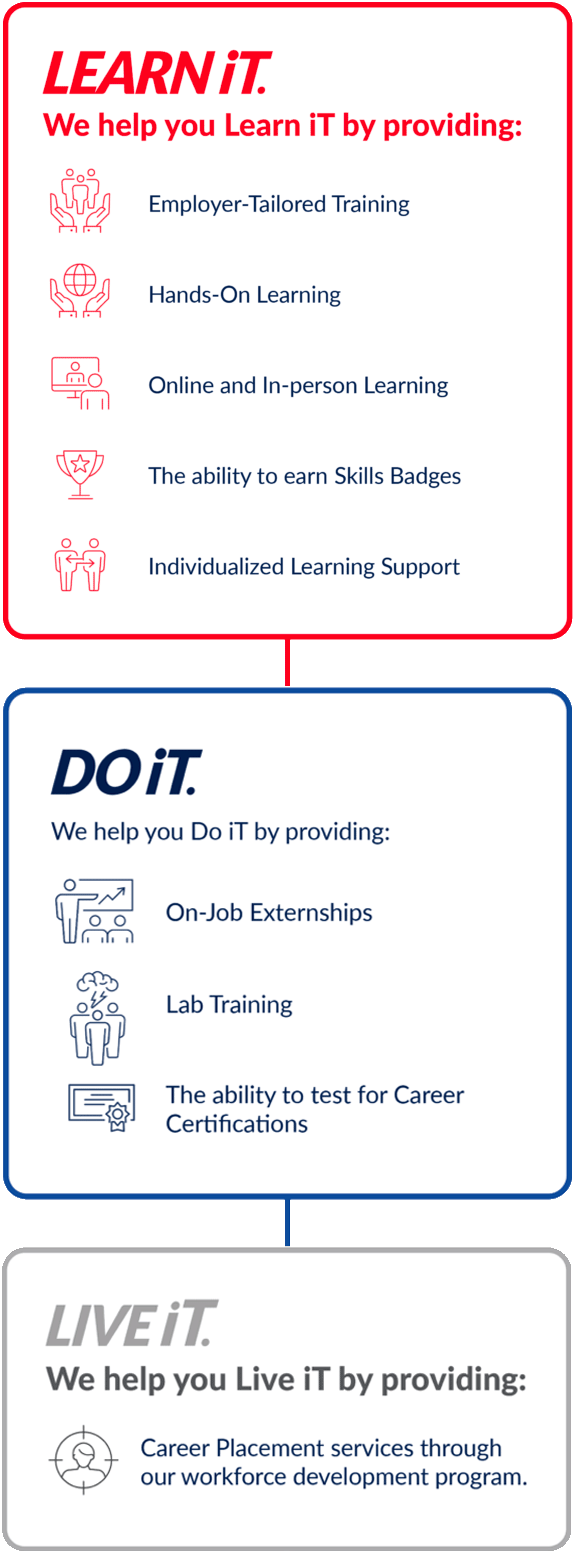WE'RE DIFFERENT.
SO ARE YOU.
OURDIFFERENCE
OURDIFFERENCE
* SCI does not guarantee employment or a starting salary upon graduation, completion, or withdrawal from SCI.
CAREER TRAINING.FOR YOUR FUTURE.
- Southern Careers Institute
- Competitors
| Southern Careers Institute | Competitors | |
$3999 /year | $3999 /year | |
| HAIR CUTTING AND STYLING TRAINING | ||
| HAIR COLORING TECHNIQUES | ||
| GUIDANCE IN HAIR STYLING TRENDS | ||
| FACIALS AND SKIN CARE TREATMENT TRAINING | ||
| TRAINING IN NAIL TECHNIQUES | ||
| TRAINING IN MAKEUP APPLICATION | ||
| WAXING AND HAIR REMOVAL TRAINING | ||
| SALON OPERATION AND MANAGEMENT | ||
| THE ABILITY TO TEST FOR LICENSURE | ||
| EARN 13 CAREER SKILL BADGES | Buy Now | Buy Now |
The graphic compares our institution’s features and benefits to competitors who offered the program between 01/01/2023 and 03/31/2023 in Texas. It is essential to conduct independent research when choosing an institution for training. Information in the graphic is general and may vary. We do not guarantee accuracy and disclaim liability.
HEAR FROM STUDENTSJUST LIKE YOU



Past students’ outcomes, starting salaries, or job prospects are not indictive of the possible job outcomes for future and current students. SCI does not guarantee employment or a starting salary upon graduation, completion, or withdrawal from SCI.
CAREER TRAINING.YOU CAN TRUST
ACCREDITED
Southern Careers Institute is Accredited by the Commission of the Council on Occupational Education.
APPROVED
Southern Careers Institute is Approved for training by The Texas Department of Licensing and Regulation.
HERE'S WHAT YOU CAN EARN AS ANESTHETICIAN STUDENT
Included State Licensure*
Taken through a third party provider

Esthetician License
*Exam fee included in tuition if taken within three months of program completion.
WHAT TO KNOW ABOUT AESTHETICIAN CAREER
Why would you want to be an Esthetician?
What is an Esthetician?
Where can an Esthetician work?
Do you need any certifications or licenses to become an Esthetician?
What skills do you need to be an Esthetician?
Do you need training to become an Esthetician?
Southern Careers Institute (SCI) does not guarantee employment or a starting salary upon graduation, completion, or withdrawal from SCI. It is not required to attend SCI to attain a job or earn a certain salary in a field of employment. Past students’ outcomes, starting salaries, or job prospects are not indicative of those for future and current students.
Skills
Hours: Theory 60 / Laboratory 20 / Total 60 / Quarter Credits 7.0 / Outside Hours 20 / Prerequisites: None
This course includes information on general safety regarding awareness, tool safety, load, posture, signage, material handling, and environmental concerns. Emphasis on OSHA guidelines, as well as proper personal safety equipment. This course will also provide instruction on basic mathematics, terminology, symbols, graphics, measurement systems and tools for reading and interpreting prints, mechanical drawings, assembly drawings, detail drawings, and fabrication guidelines. This course will utilize both in-class and out-of-class learning activities to achieve course objectives.
Hours: Theory 60 / Laboratory 20 / Total 80 / Quarter Credits 7.0 / Outside Hours 20 / Prerequisites: TRD100
This course introduces the student to basic electrical theory and concepts of wiring. It establishes a thorough understanding of electron theory, voltage, current (both AC and DC), resistance, inductance, capacitance, and common units of electrical measurement. Basic circuit design and National Electrical Code (NEC) will be introduced in this course. This course is also a study of how to properly calculate, layout, and bend tubing and wiring per industry and National Electrical Code (NEC) standards. It introduces types and applications of conductors, proper wiring techniques, electrical prints, drawings, and information found on schematics, and wiring diagrams. NEC requirements are stressed throughout this course. This course will utilize both in-class and out-of-class learning activities to achieve course objectives.
Hours: Theory 30 / Laboratory 50 / Total 80 / Quarter Credits 5.5 / Outside Hours 20 / Prerequisites: ELC120
This course covers motors, both AC and DC, including main components, circuits, and connectors. Selecting, sizing, and installing motor controls are also covered in this course. This course will also review skills necessary for inspecting, diagnosing, and maintaining electrical systems, components, and equipment. Students will work on a variety of scenarios, both residential and commercial, to perfect their skills in troubleshooting electrical issues. This course will utilize both in-class and out-of- class learning activities to achieve course objectives. Safety and NEC guidelines are stressed throughout this course.
Hours: Theory 10 / Laboratory 70 / Total 80 / Quarter Credits 4.5 / Outside Hours 20 / Prerequisites: ELC120
This course establishes the students’ physical hands-on skills in completely wiring a single family residence from issue of permit to final inspection. The course focuses on the National Electrical Code (NEC) requirements for residential wiring. This course will also focus on the purpose of grounding and bonding electrical systems. Students will be trained on the importance and use of fuses, circuiters, contactors, and relays. This course will utilize both in class and out-of-class learning activities to achieve course objectives. Safety and NEC guidelines are stressed throughout this course.
Hours: Theory 10 / Laboratory 70 / Total 80 / Quarter Credits 4.5 / Outside Hours 20 / Prerequisites: ELC120
This course introduces types and applications of conductors and covers proper wiring techniques, including instructions on transportation, storage, and setup of cable reels, pulls in raceways, termination, splicing, preparing, and taping of conductors, conductor selection, and current carrying capacity. This course will also include instruction on switchboards, switchgears, transformers, and connections. Selection, sizing, installation, and protection will also be covered. This course will utilize both in-class and out-of-class learning activities to achieve course objectives. Safety and NEC guidelines are stressed throughout this course.
Hours: Theory 20 / Laboratory 60 / Total 80 / Quarter Credits 5 / Outside Hours 20 / Prerequisites: ELC121, ELC122, ELC123
Students will be introduced to the characteristics of lighting, focusing on the handing and installation of various layouts, wiring, and fixtures. Includes training on lighting controls. This course will also cover applications and operating principles of solid-state controls, reduced voltage starters, and adjustable frequency drives. HVAC systems and their controls will be included. This course will utilize both in-class and out-of-class learning activities to achieve course objectives. Safety and NEC guidelines are stressed throughout this course.
Hours: Theory 20 / Laboratory 60 / Total 80 / Quarter Credits 5 / Outside Hours 20 / Prerequisites: ELC121, ELC122, ELC123
This course covers characteristics of basics of electrical components, circuits, insulation, carrying capacity, and voltage. This course will also cover equipment installed in hazardous locations, overcurrent protection, and short circuit calculations and troubleshooting. Sizing and selecting circuits and fuses will be covered. This course will utilize both in-class and out-of-class learning activities to achieve course objectives. Safety and NEC guidelines are stressed throughout this course.
Hours: Theory 20 / Laboratory 60 / Total 80 / Quarter Credits 5 / Outside Hours 20 / Prerequisites: ELC121, ELC122, ELC123
This course covers calculations for branch circuit and feeder loads for residential and commercial applications, motor calculations to size conductors and overcurrent protection for motor applications, and factors involved in conductor selection including insulation types, current carrying capacity, temperature ratings, and voltage drop. This course also covers National Electrical Code (NEC) requirements for commercial wiring. Installation of conduit, equipment, and calculation of service will be presented. Safety, blueprint reading, and proper use and identification of materials associated with commercial wiring will be stressed. This course will utilize both in-class and out-of-class learning activities to achieve course objectives
Hours: Theory 40 / Laboratory 40 / Total 80 / Quarter Credits 6 / Outside Hours 20 / Prerequisites: ELC121, ELC122, ELC123
This course will cover the function and operation of electronic devices. The course includes instruction on termination, splices, cleaning, testing, and tracing. This course will also cover special installation situations, materials, equipment, and services. This course will utilize both in-class and out-of-class learning activities to achieve course objectives. Safety and NEC guidelines are stressed in this course design. This course will utilize both in-class and out-of-class learning activities to achieve course objectives.
FACT: TODAY'S EMPLOYERSNEED YOUR SKILLS
Electrical and Electronic Engineering Technologists and Technicians
Occupation Code: 17-3023
| Location | Mean Annual Wage |
|---|---|
| Austin | $64,300 |
| Brownsville-Harligen | NA |
| Corpus Christi | $71,980 |
| Pharr | $62,310 |
| San Antonio North & South | $68,430 |
| Waco | $67,870 |
Southern Careers Institute (SCI) does not guarantee employment or a starting salary upon graduation, completion, or withdrawal from SCI. It is not required to attend SCI to attain a job or earn a certain salary in a field of employment. Past students’ outcomes, starting salaries, or job prospects are not indicative of those for future and current students.
Displayed salaries and job outlook data do not reflect the prospects of Southern Careers Institute graduates’ job placement outcomes and starting salaries. U.S. Bureau of Labor Statistics employment data, job prospects, and salary data sourced for (insert specific metro and job page) does not reflect data applicable to entry-level positions.
FREQUENTLY ASKEDQUESTIONS
What makes Southern Careers Institute different?
We give students an alternative to expensive, four-year degrees. Employers are looking for specific skills from candidates they can hire with confidence. Our coursework goes deeper than pen and paper, providing hands-on learning opportunities that set us apart from the competition. Our goal is to provide you with an education that will empower your future.
What if I’ve been out of school for a while?
That’s okay! At Southern Careers Institute, we have had a plethora of students successfully complete their programs after being away from school for long periods of time. We’re ready to meet you where you’re at, providing a community-based learning environment where you’ll feel right at home as you readjust to life as a student!
What can I expect to gain from Southern Careers Institute?
Southern Careers Institute provides you with the training you need to sit for certifications in your chosen field. Whether it’s our Medical Assistant training program, Medical Billing and Coding Specialist program, Pharmacy Technician program, Business Accounting Specialist program, HVAC program, or any other educational programs available, you will receive training to tackle industry-specific certifications.
I don’t know if I can afford training. Is there financial aid available?
As an accredited school, we participate in many financial aid programs and available grants to make your education more affordable. Contact us today and our financial aid officers will explain the process and answer all of your questions.
How can I obtain more information?
Click here or call 1.833.SCI.TEXAS today to speak with one of our admissions representatives, who will be happy to schedule an appointment to answer all of your questions.
Is Southern Careers Institute accredited school?
Southern Careers Institute is accredited by the Commission of the Council on Occupational Education.
Council on Occupational Education
7840 Roswell Road, Building 300,
Suite 325 Atlanta, GA 30350
(770) 396-3898 or (800) 917-2081
Does Southern Careers Institute accept credits from other schools?
If you are a student transferring from another school, you must provide a transcript and detailed course descriptions for review prior to starting school. Please be advised that the acceptance of credits from another school/state board is at the sole discretion of Southern Careers Institute.
Does Southern Careers Institute offer classes in any other language than English?
Our students must be able to read, write, speak, and understand English. At this time, programs are not offered in any language other than English.



